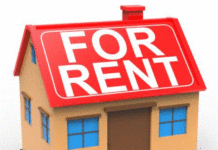Taking The Plunge
So you’ve read the articles, you’ve crunched the numbers, you’ve listened to Brandon Turner on www.biggerpockets.com, you’ve read the books and you’re ready to take the plunge and buy your first investment property. Feeling anxiety and nerves is totally normal. Wondering if you’re making a huge mistake is too. Don’t worry about that. Thinking too much can be the investors worst enemy. In the real estate investing world, we call this “analysis paralysis”. It’s when someone is so worried about what could go wrong, or if they did their research correctly, that they are stuck frozen and can’t close a deal. Well I’m here to tell you that if you’ve done your homework, you can afford the payment, and you’re up for the demands of a rental property, you have little to fear. Sometimes the biggest mistake is not pulling the trigger!
People often ask me what is the best way to get started investing in real estate. While there is no “one size fits all” method for building wealth, there are a few first steps that can be easier than others. Combining these strategies can minimize the risk involved in purchasing investment property and put you on the fast track to being ready to buy your first house. Let’s discuss a few of these here today:
DUPLEXES, TRIPLEXES, 4-PLEXES
While most people think about their very first home being a nice little 3 bedroom, 2 bathroom charmer with a white picket fence and 2 car garage, the wise investor sees things differently. Buying a multi-unit property as a primary residence is not only possible, it’s just as easy as buying a single family home. Any property 1-4 units is considered a single family residence by federal government lending standards. What does this mean you ask? It means you can get your standard 30 year, low-interest rate, low down payment loan but still get multiple units to rent out. This, in my opinion, is the best of both worlds. When purchasing property over 5 units (from 5 to infinity) a commercial loan is required. These loans typically have higher interest rates, shorter pay back periods, and require larger down payments. They are best left to the experienced investor who understands their terms. The great news is, a total newbie can buy a 4 plex with a loan just like a standard home. Why is this such a big deal you ask?
HOUSE HACKING
House hacking is a term used to describe owning a home but not paying for it. When someone “house hacks”, they buy a property and rent the rooms out to other people while living in it themselves. When done correctly this can cover the mortgage payment completely, leaving the investor a home they own but don’t have to pay for! Since other people’s money is the best kind of money, house hacking takes advantage of this principle and applies it to primary residences.
The strategy doesn’t just apply to renting out rooms alone.
Why stop at renting out rooms when you can rent out entire units? The owner of a duplex, triplex, or 4-plex can live in one of the units and rent the other(s) out to tenants. When bought correctly, this can cover the entire mortgage and expenses, with usually money left over! Imagine buying your first property and not having to pay a dime of your own money to pay it off. Imagine buying your first property and actually making money to live there! This is a very common possibility when purchasing multi unit properties to live in as primary residences. As great as this sounds, the benefits don’t stop there.
PREFERABLE LENDING TERMS
When buying a property as an investment property, banks charge higher interest rates and require more money down (usually a minimum of 25%). This can be quite the hurdle for someone trying to save up money for their first property. However, if you plan on living in the property yourself, you can get a 2,3, or 4 unit property with the same terms you can buy a single family home. This means low down payment options such as FHA loans are available. Can you imagine putting 3.5% down on a 4 unit property, then having other people pay the mortgage for you completely? Once the loan is paid down or the property appreciates enough, the mortgage insurance can be dropped or the property can be refinanced to drop it. This makes for an incredibly easy entry into the world of real estate investing, and gives you somewhere to live while you do it!
FLEXIBILITY WHEN MOVING
When you buy a home as a primary residence, you typically agree to live there for a year. Imagine buying a new multi-unit property every year as your primary residence, taking advantage of lower interest rates, lower down payments, and never having to pay any money for rent! Can you imagine how much money you could save that way? If you did this every year for 10 years, you would own 10 multi family properties you put very little of your own money down to own. Each property should be generating cash flow for you while the loans are all steadily paid down. This, folks, is how millionaires are made.
SAVING FOR THE FIRST DOWN PAYMENT
While “house hacking” works great when you own a home, it doesn’t need to be limited to only that. If you can work the terms out with your landlord, you can rent out the extra bedrooms in the home to friends or acquaintances and pocket what they pay. This alone can be enough to help you save the down payment for the first house you want to buy. While some people balk at the idea of having others in their personal space, it seems a much smaller price to pay when looked at with the big picture in mind. To get an idea of what that big picture looks like, lets put all these pieces together to see how it would look.
THE BIG PICTURE
Image this-You are renting a 3 bedroom house that you pay $1200 a month for. Garbage, power, water, sewer, and cable come out to another $300. This brings you to a total of $1500.
You rent two of the bedrooms out to coworkers who are looking to save money themselves. Each of the coworkers pays you $500 a month for rent, and contributes $100 a month towards utilities. This is all done with the approval of the landlord as you are responsible for making the full payment of $1200 to him regardless of if your coworkers pay. This reduces your monthly payment from $1500 to $300.
You save the extra $1200 for one year. At the end of the year, you are left with $14,400 saved up from your reduced living expenses alone.
You find a 4-plex for sale in a nice part of town with a good demand for rent. All 4 units are 2 bedroom, 1 bathroom units with a 1 car garage and a driveway space. You do your research and see comparable units in the area are renting for $1000 each. You make an offer to buy the 4-plex for $400,000 and your offer is accepted. You put 3.5% down on the property using an FHA loan as you intend to live in the property as your new primary residence. You get an interest rate of 3.5%, and pay $4,000 in closing costs. This brings the total amount of your loan to $390,000. Your mortgage payment is about $1750 a month. Property taxes are $200 a month, and homeowners insurance is $100. You were careful not to buy in an area with a Home Owners Association, and you work out a deal with a local property management company to manage the property for 8% (a total of $240 for three units rented at $1000 each). You budget 10% of rent received ($300) a month to cover vacancies and repairs. This brings your total expenses to own the property up to $2590. The 3 units you rent out are bringing in a total of $3000. You have already covered all the costs of ownership, and have $410 left over. While this is great, you know you can do better. You decide to bring one of your old coworkers with you to rent a bedroom in the unit where you will be staying for $500 a month.
This means you are now making an extra $910 a month. You put $14,000 to buy the property. This means you are earning a 7.8% return on your money, while living rent free.
When you rented the house and let your coworkers live with you, you were spending $300 on rent. Now you are saving that $300, plus the $910 a month you make from the 4-plex. This brings your total monthly rent savings to $1,210 a month. You are making an extra $1210 a month and you own your own property.
You do this for one year and save another $14,520.
At the end of the year you buy another 4-plex to move into and repeat the cycle. You rent the unit in you were living in in you first 4-plex out for $1,000, bringing the total income received by the 4-plex up to $4,000 now. This means you are profiting $1410 instead of $910, every month.
You bring your coworker with you to the new 4-plex where your numbers are the same as the first time. The new 4 plex makes you $910 a month. The first 4-plex is making you $1410 a month. This is a grand total of $2320 a month you’re now saving. That equals $27, 840 a year.
At the end of the second year, you can now buy another 4-plex. Two of them are making you $1410 a month, the one you live in is making you $910. This is a total of $3,730 a month, and $44,760 a year.
FORTY FOUR THOUSAND SEVEN HUNDRED SIXTY DOLLARS A YEAR. This isn’t including the extra $13,840 you had left over after buying the third 4-plex. That means these properties have now helped you save $58,600 in three years. In addition to this you own 3 properties. Now instead of buying one 4-plex a year, you can buy three. The year after that, four. Then five. Can you see how crazy fast these numbers start to add up? That’s how millionaires are made. A small sacrifice in the beginning becomes a big gain later on.
By combining the strategies I’ve laid out in this post (house hacking, preferable lending terms, flexibility when moving, and saving for the first down payment) putting them all together with the big picture in mind, substantial wealth can be gained in only a few years. Nothing I’ve mentioned is crazy or unreasonable, requires a complicated college degree, or connections in the business world. Anybody with focus, ambition, and perseverance can achieve these goals, and those are all traits anyone can master.













